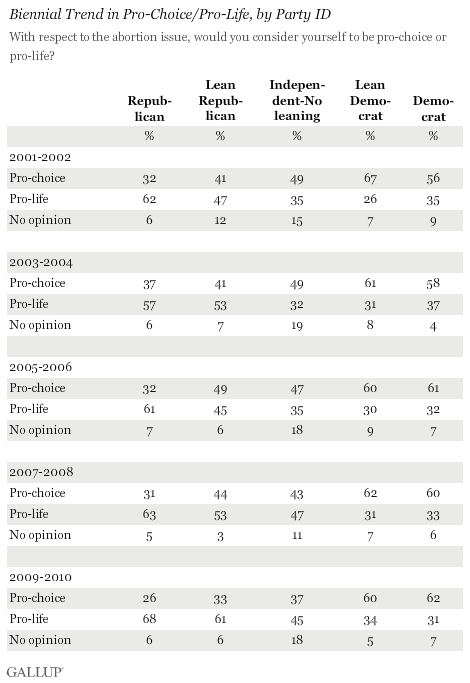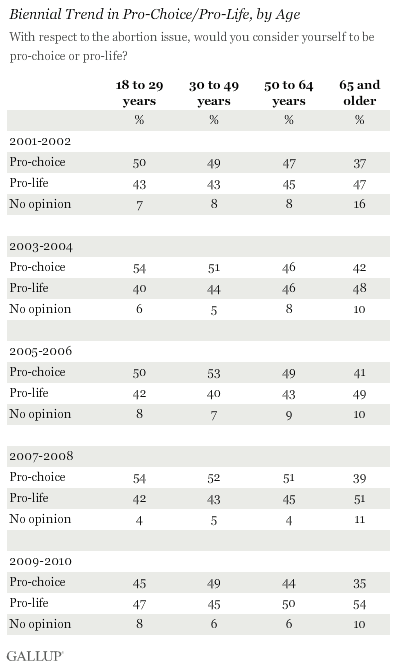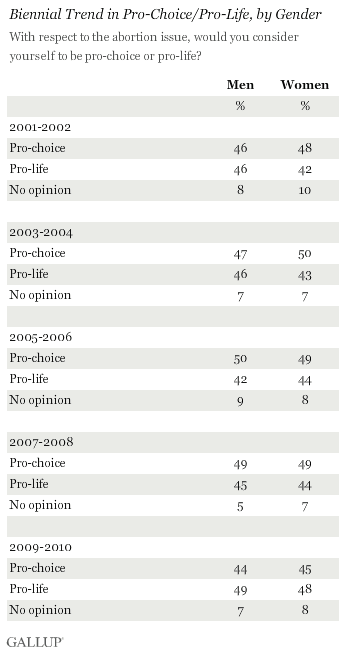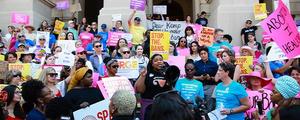PRINCETON, NJ -- The conservative shift in Americans' views on abortion that Gallup first recorded a year ago has carried over into 2010. Slightly more Americans call themselves "pro-life" than "pro-choice," 47% vs. 45%, according to a May 3-6 Gallup poll. This is nearly identical to the 47% to 46% division found last July following a more strongly pro-life advantage of 51% to 42% last May.
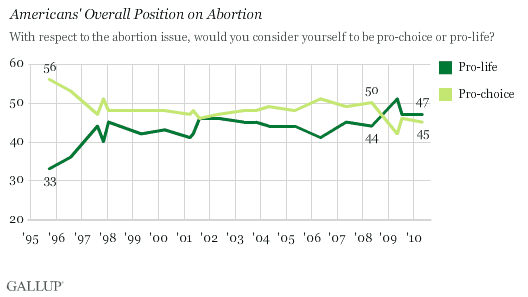
While the two-percentage-point gap in current abortion views is not significant, it represents the third consecutive time Gallup has found more Americans taking the pro-life than pro-choice position on this measure since May 2009, suggesting a real change in public opinion. By contrast, in nearly all readings on this question since 1995, and each survey from 2003 to 2008, more Americans called themselves pro-choice than pro-life.
Shift Limited to Republicans and Independents
According to two-year averages of these results since 2001, Republicans have become more likely to call themselves pro-life since polling conducted in 2003/2004, as have Republican-leaning independents since 2005/2006. Independents who lean to neither party also became more likely to call themselves "pro-life" between 2003/2004 and 2005/2006, but have since held steady.
Democrats' self-identification with the pro-life position has moved in the other direction, declining from 37% in 2003/2004 to 31% in 2009/2010. Among independents who lean Democratic, there has been no movement in either direction.
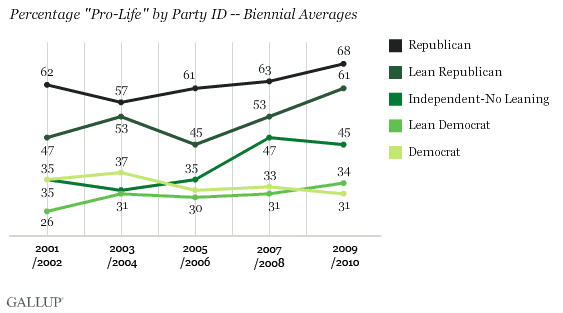
Age and Gender Trends Mirror Overall Pattern
All age groups have become more attached to the pro-life label since 2005, with particularly large increases among young adults and those aged 50 to 64 years in the latest period between 2007/2008 and 2009/2010.
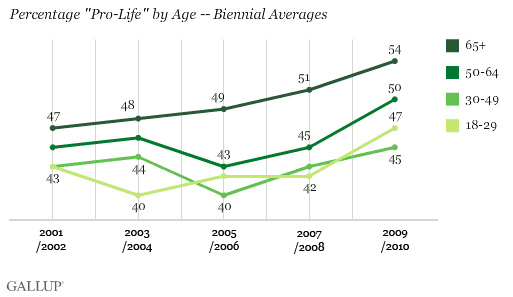
Both genders have also become more likely to identify as pro-life, with the increase among women coming mainly since 2008, whereas the increase in men started after 2006.
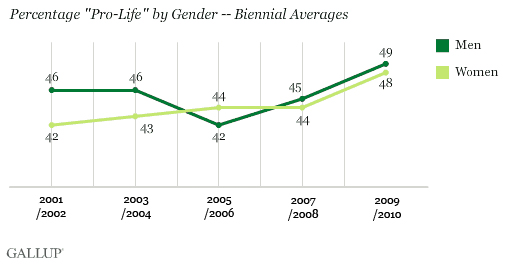
Underlying Moral Reaction to Abortion is Unchanged
It is not entirely clear why Americans have grown more likely to embrace the pro-life label when defining their own views on the issue, especially because there has not been an attendant increase in opposition to abortion on moral grounds.
Half of Americans currently say abortion is morally wrong -- in line with most of Gallup's readings on this question since 2001, although higher than the initial 45% recorded in 2001 and a one-time 44% reading in 2006.
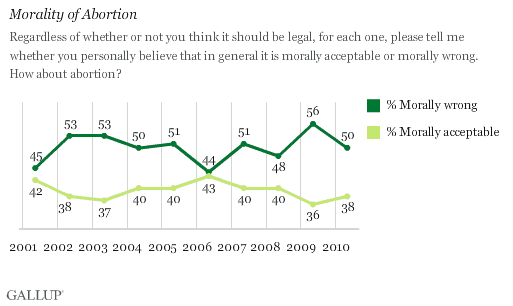
Barring evidence that Americans are growing more wary about the morality of abortion per se, the trends by party identification suggest that increased political polarization may be a factor in Republicans' preference for the "pro-life" label, particularly since Barack Obama took office. Whatever the cause, the effect is that the pro-life label has become increasingly dominant among Republicans and to a lesser degree among independents, while the pro-choice label has become more dominant among Democrats.
Results are based on telephone interviews with 1,029 national adults, aged 18 and older, conducted May 3-6, 2010. For results based on the total sample of national adults, one can say with 95% confidence that the maximum margin of sampling error is ±4 percentage points.
Interviews are conducted with respondents on landline telephones (for respondents with a landline telephone) and cellular phones (for respondents who are cell phone only).
In addition to sampling error, question wording and practical difficulties in conducting surveys can introduce error or bias into the findings of public opinion polls.
